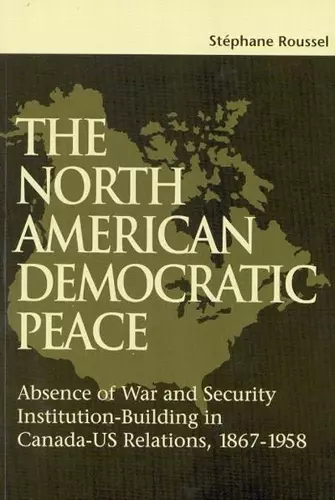The North American Democratic Peace
Absence of War and Security Institutions Building in Canadians-U.S. Relations (1867-1958)
Format:Hardback
Publisher:Queen's University
Published:25th May '04
Currently unavailable, our supplier has not provided us a restock date

Since the nineteenth century war seems to have been banished as a way to solve conflict between Canada and the United States. Why did this happen and why have the two states developed a relationship of cooperation that is much more "egalitarian" than one
Suggests that Canadian-American relations are a manifestation of the popular but controversial 'Democratic Peace' effect. This book also shows that the structure of Canada-US relations can be explained by the fact that in their mutual relations both governments have applied the norms and rules they use at the domestic level.That democratic societies do not fight one another is well documented, but the mechanisms that produce and maintain this situation remain vague. Stephane Roussel argues that Canadian-U.S. security relations provide a case study that allows us to better understand this process. He shows that the structure of Canada-U.S. relations can be explained by the fact that in their mutual relations both governments have applied the norms and rules they use at the domestic level, such as banishing the use of violence and establishing equal representation. This book describes how the democratic-liberal values and norms shared by both states shaped the evolution of Canadian-American practices and institutions in the realm of security from 1867 to the formal creation of NORAD in 1958. It also challenges the common perception of Canada as a satellite of the U.S. and explains why Canadians and Americans take the peace between them for granted.
ISBN: 9780889119390
Dimensions: unknown
Weight: unknown
250 pages